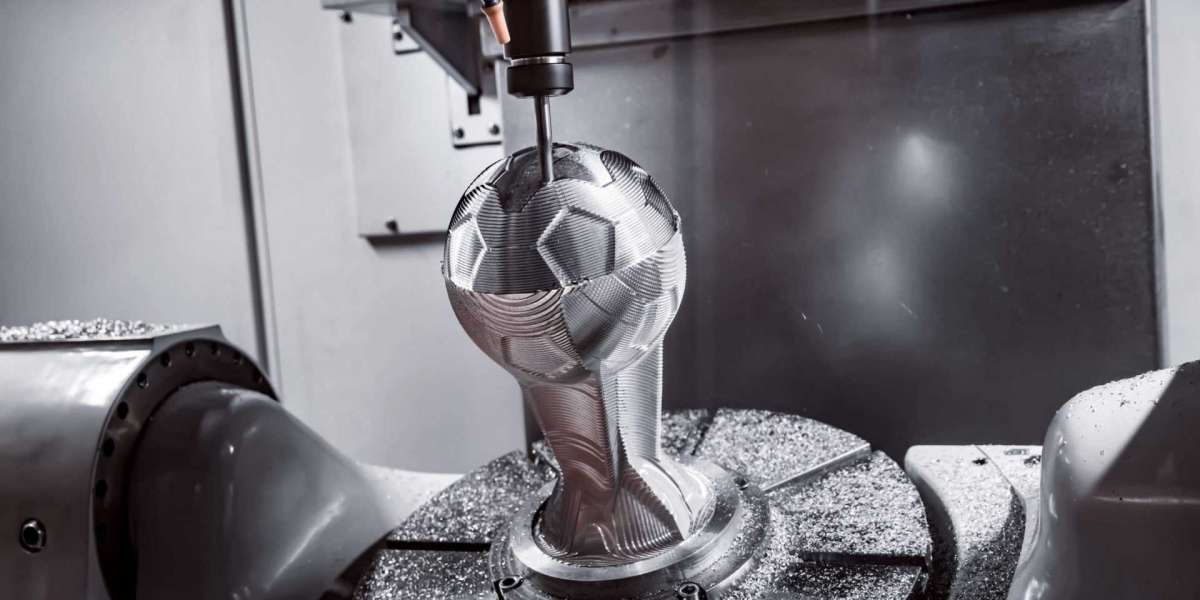Local CNC machining is becoming an increasingly popular option for businesses in need of high-quality, custom parts with fast turnaround times. The rise of small, independent CNC machine shops has made it easier for companies to find precision manufacturing services close to home, offering a more personalized approach compared to large, global manufacturers. CNC machining, or Computer Numerical Control machining, allows for the automated production of complex components with exceptional accuracy and efficiency, making it an invaluable tool across many industries. This article will explore the growing role of local CNC machining, its advantages, and how businesses can benefit from working with local suppliers.
What is Local CNC Machining?
CNC machining refers to the process of using computer-controlled machines to shape and fabricate materials into specific designs. A wide variety of operations such as milling, turning, drilling, and grinding are carried out through precise, automated movements of machine tools. What sets local CNC machining apart from large-scale manufacturers is its emphasis on smaller, more personalized services, with a focus on rapid prototyping, low-volume production, and custom orders.
Local CNC machining typically refers to machine shops or manufacturers that operate within a specific region or locality, providing services to businesses and industries within that geographic area. These shops offer high-precision machining and a variety of materials, including metals, plastics, and composites. By working with local CNC providers, businesses can avoid the lengthy lead times, high shipping costs, and communication barriers often associated with international suppliers.
How Does Local CNC Machining Work?
The CNC machining process begins with a computer-aided design (CAD) file, which contains the specifications of the desired part. The CAD model is converted into a format that CNC machines can understand, usually in the form of G-code, which dictates how the machine should move to cut, drill, or mill the material.
Once the design is ready, the material (often in the form of a solid block, sheet, or rod) is loaded into the CNC machine. Depending on the type of CNC machine being used, the material may be cut or shaped in various ways. Some common types of CNC machines used in local machining include:
- CNC Mills: These machines use rotary cutters to remove material from the workpiece, allowing for the creation of complex parts with multiple features.
- CNC Lathes: These machines rotate the workpiece while a tool is applied to create cylindrical or conical shapes, such as shafts or threaded parts.
- CNC Routers: Used for cutting softer materials like wood, plastic, and foam, CNC routers are ideal for creating larger, flatter parts.
- CNC Laser Cutters: These machines use focused laser beams to cut or engrave materials with high precision.
- CNC Grinders: Grinding machines are used for finishing parts with fine tolerances, often used for high-precision applications.
Local CNC machine shops have the flexibility to handle small batches, custom designs, and prototype production, allowing businesses to create unique components with highly specific tolerances.
Advantages of Local CNC Machining
Working with a local CNC machining provider offers several distinct advantages for businesses. Here are some of the most compelling benefits:
1. Faster Turnaround Times
One of the most significant advantages of working with local CNC machining services is the ability to receive faster delivery. International suppliers often have long shipping times and customs delays, but local shops can deliver products more quickly, reducing lead times. Local shops are also more responsive to changes or urgent orders, allowing businesses to meet deadlines without worrying about external delays.
2. Cost-Effective Shipping and Logistics
Choosing a local CNC machining service significantly reduces shipping and handling costs. International shipments can be expensive, especially when dealing with large or heavy parts. By sourcing parts locally, businesses can save on freight charges and eliminate the risk of damage or delays during transit. Furthermore, local suppliers are often more familiar with the logistics of their region, ensuring smoother and more reliable delivery.
3. Customization and Flexibility
Local CNC machining services are well-suited for producing custom or low-volume orders. Unlike large manufacturers that specialize in mass production, local CNC shops can offer greater flexibility in accommodating unique designs, special materials, and specific customer needs. Whether a business needs prototypes, one-off components, or small-batch production runs, local CNC shops are capable of adapting to the requirements, ensuring the final product meets the exact specifications.
4. Personalized Service and Communication
Another benefit of working with a local CNC machining shop is the ability to establish direct communication with the machinists and engineers. This personalized service allows for better collaboration, faster problem-solving, and more accurate understanding of design needs. Local suppliers are often more willing to accommodate last-minute changes, modifications, or design revisions, ensuring a smoother manufacturing process.
5. Support for Local Economy
By choosing local CNC machining services, businesses are supporting their local economies. This can create a positive ripple effect in the region, promoting job growth and helping to strengthen the manufacturing community. Additionally, many local shops invest in state-of-the-art equipment, technology, and training to stay competitive, which benefits industries across the area.
Applications of Local CNC Machining
Local CNC machining plays an essential role in many industries by providing custom, high-precision parts. Here are some common sectors that rely on local CNC machining:
1. Aerospace
Aerospace manufacturing requires extremely high levels of precision due to the critical nature of the parts. CNC machining is widely used to produce components such as turbine blades, engine mounts, brackets, and fasteners. Local CNC machinists are often called upon for specialized, low-volume, and high-precision parts, making them an essential partner for aerospace companies.
2. Automotive
The automotive industry uses CNC machining for producing parts like engine blocks, gears, shafts, and custom exhaust systems. Local CNC machining shops are particularly useful for automotive companies that require small quantities of custom parts or modifications to existing designs, as well as for prototyping new vehicle models.
3. Medical Devices
The medical device industry relies heavily on precision machining for creating parts like surgical instruments, implants, and diagnostic equipment. CNC machining allows for the high levels of accuracy needed for components that must meet strict regulatory standards. Local CNC shops are ideal for producing these specialized components due to their ability to create custom designs quickly and with attention to detail.
4. Electronics and Consumer Goods
In the electronics industry, CNC machining is used to produce casings, heat sinks, brackets, and other components. With the increasing demand for smaller, more intricate electronics, local CNC machining shops offer the ability to produce custom parts with tight tolerances, ensuring the proper fit and function of consumer goods like smartphones, computers, and wearable devices.
5. Industrial Equipment
Many industrial equipment manufacturers rely on CNC machining for creating parts like gears, pulleys, and machine frames. Local CNC machining services allow for the quick turnaround of custom parts needed for the repair, upgrade, or modification of existing machinery, helping to minimize downtime and improve efficiency.
How to Choose the Right Local CNC Machining Provider
Selecting the right local CNC machining service is crucial to ensure the success of your project. Here are some factors to consider when choosing a CNC machining provider:
- Experience: Look for a shop with experience in the specific industry and type of parts you need. Experienced machinists will understand the technical requirements and be able to provide expert advice.
- Capabilities: Make sure the shop has the equipment and expertise to handle the materials, designs, and quantities you require. Some shops specialize in certain types of machining, so choose one that aligns with your needs.
- Quality Control: Verify that the shop has strong quality control measures in place, including inspection processes to ensure parts meet your exact specifications.
- Customer Service: Choose a CNC machining provider with excellent communication skills and a customer-centric approach. Being able to discuss your needs and ask questions during the process is essential for a successful partnership.
Conclusion
Local CNC machining is an invaluable resource for businesses looking to manufacture high-quality, custom parts with fast delivery and cost savings. With its ability to provide flexibility, precision, and personalized service, local CNC machining is well-suited for industries ranging from aerospace to medical devices. By working with local suppliers, companies can avoid international shipping delays, reduce costs, and foster stronger communication and collaboration throughout the manufacturing process. Whether for prototyping, small-batch production, or custom parts, local CNC machining plays an essential role in modern manufacturing.



